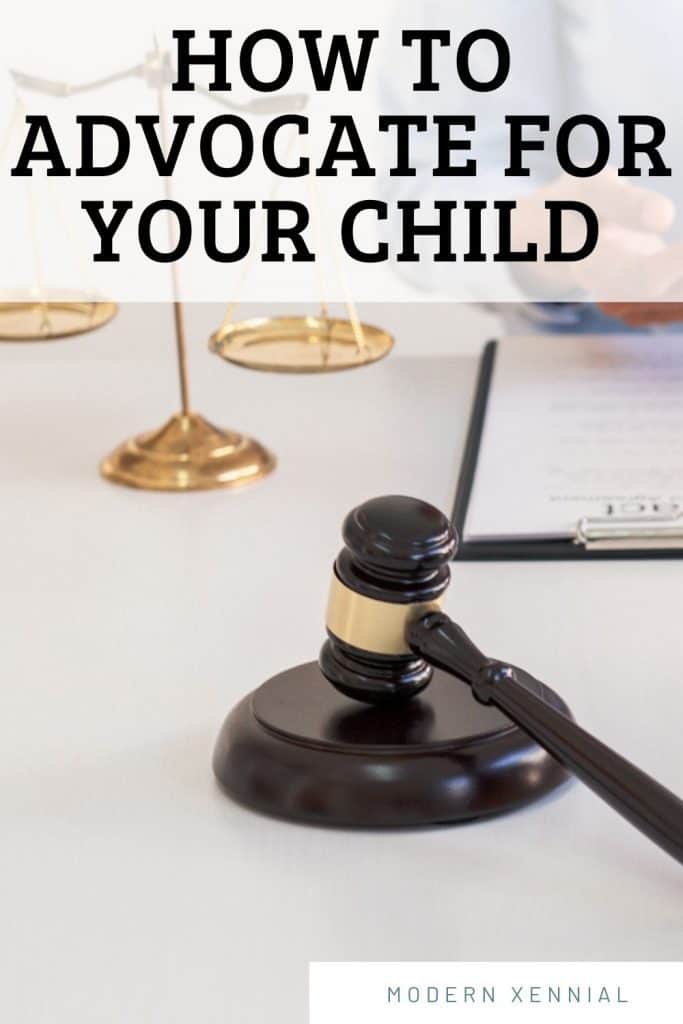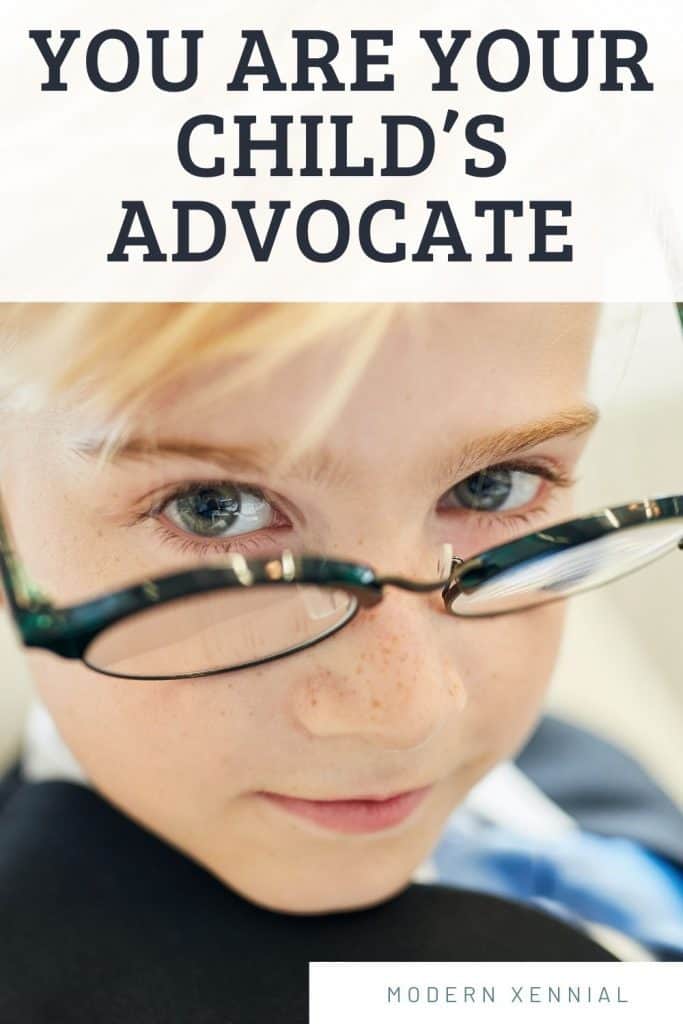
If you have discovered that your child has a learning disability, or you are beginning to suspect that he/she does, you might be wondering what you can do to make sure that she is getting the best support possible when they are at school.
Here are some good rules to follow to speak up:
1. Communicate with your child and ask questions.
2. Recognize that your child behaves differently at home and at school.
3. Maximize parent-teacher conference time.
4. Don’t delay getting support for your child.
5. Request special services in writing.
6. Meet with the people who evaluate your child.
7. Understand the Individual Education Plan.
8. Monitor your child’s moods.

My Personal Story for Advocating for my Child
Beginning with N’s 9-month well-visit, and every well-visit thereafter, I would ask our pediatrician if it was odd that N wasn’t producing any sounds and would also projectile vomit if I gave him any food remotely solid. He would say that every child develops differently and that N would eventually “eat cheerios” and say “mama.” Finally, (and I am embarrassed to say it took me even this long), at his 18-month well-visit, I requested a prescription to have N tested for speech and feeding delays. I knew N the best, and knew that there was something up…
We took him for a speech evaluation in November of 2006 and he was diagnosed with speech and feeding delay. It was there that I was introduced to Florida’s Early Steps program (many states have similar programs). Early Steps is an early intervention program funded by the state that helps children acquire the therapy they need until the age of 3.
At 3 years of age, the child gets turned over to the school system for any needed specialized schooling and therapy). N started private speech therapy until our ES evaluation on December 22, 2006. I remember that day as if it was yesterday – we were brought into a room with 3 therapists and a psychologist and were basically bombarded with questions about N’s daily routines, behaviors, etc. All the while, the therapists would take time “playing” with N to better observe.
When they told Rich and I, at the end of the review, that N was approved for speech and occupational therapy I was so happy I could cry! I knew from that point that N was going to be able to get the training and attention needed to get him on track

We took him to a pediatric neurologist at the Dan Marino Center here in Weston, Florida to confirm that there was nothing neurologically wrong with N. We met with a psychologist there who diagnosed N with PDD-NOS. They recommended a genetics test (blood draw) which came back negative (yay!). He underwent an EEG and specialized hearing test which came back negative (thankfully). We visit the neurologist every 6 months for a check-up and she is very happy with N’s overall progress.

I found out about the Center for Autism and Related Disabilities (CARD) – they are a nonprofit organization that offers behavioral and other therapies for children diagnosed with Autism and other PDDs. We now see a behavioral therapist there who helps us understand and communicate better with N. He gets very frustrated when you cannot understand what he is trying to tell you and would express his frustration through hitting and throwing objects.
He started with the therapy through ES in January of this year. He goes to speech twice a week for 30 minutes, occupational twice a week for 30-minutes, as well as physical therapy twice a week for 30-minutes (for a range of motion). He is now starting to speak – he says “car”, “cool car”, “hat”, “door”, “this”, and “carousel” – when he’s at the zoo.
He can sign a few words to aid in communication and we have a picture book that helps with the rest of his daily communication needs. His range of motion in his neck is great – he still favors the left side so we are continuing that therapy until that releases a bit. N still only eats pureed foods, but he can feed himself with a spoon now! I see improvements in him every week.
In Conclusion
I have learned that I should have never waited as long as I did to get N tested. I should have pushed harder, but am glad I didn’t wait any longer. I know it may seem like we went through so many different tests, but they were all to make sure that N was going to be diagnosed properly and get the best care he could ever receive.
I still, to this day, research different organizations and support groups to learn as much as I can about PDD and what I can do to help N. Through conversation, I am referred to all kinds of friends, cousins, etc. that have helped me better understand PDD and that gave me great pointers, exercises, and books to read.




Shea says
Thank you! This is great! Mine are still young but I remember my parents having to advocate for my siblings and I’m nervous for the day I might have to but this clarified some things for me.
Dana says
It is SO important to get second opinions and research to best advocate for your kiddos!